-
 Bitcoin
Bitcoin $98,025.6326
0.89% -
 Ethereum
Ethereum $2,737.8725
0.46% -
 XRP
XRP $2.6131
-2.89% -
 Tether USDt
Tether USDt $1.0006
0.05% -
 BNB
BNB $655.7098
1.02% -
 Solana
Solana $173.4768
0.84% -
 USDC
USDC $0.9999
-0.01% -
 Dogecoin
Dogecoin $0.2525
0.08% -
 Cardano
Cardano $0.7950
0.93% -
 TRON
TRON $0.2442
1.19% -
 Chainlink
Chainlink $18.4045
2.42% -
 Avalanche
Avalanche $25.4213
4.17% -
 Sui
Sui $3.4185
3.80% -
 Stellar
Stellar $0.3353
-2.57% -
 Litecoin
Litecoin $132.8099
3.46% -
 Hedera
Hedera $0.2188
0.24% -
 Shiba Inu
Shiba Inu $0.0...01553
1.16% -
 Toncoin
Toncoin $3.6141
0.78% -
 UNUS SED LEO
UNUS SED LEO $9.6975
0.03% -
 Hyperliquid
Hyperliquid $24.2029
-1.70% -
 Polkadot
Polkadot $5.1915
5.03% -
 MANTRA
MANTRA $7.5295
2.14% -
 Bitcoin Cash
Bitcoin Cash $324.3149
0.81% -
 Ethena USDe
Ethena USDe $0.9985
-0.11% -
 Bitget Token
Bitget Token $4.7772
6.64% -
 Uniswap
Uniswap $9.1729
1.01% -
 Dai
Dai $1.0001
-0.02% -
 Monero
Monero $234.8248
0.80% -
 NEAR Protocol
NEAR Protocol $3.5106
6.70% -
 Pepe
Pepe $0.0...09628
2.63%
How to use Coin Control to improve transaction privacy?
Coin Control enhances transaction privacy by allowing users to select specific coins for spending, breaking the direct connection between incoming and outgoing transactions and obscuring the origin of funds.
Feb 20, 2025 at 08:06 pm

How to Use Coin Control to Improve Transaction Privacy
Key Points:
- Coin Control allows users to select specific coins for transactions, enhancing privacy by breaking the link between incoming and outgoing transactions.
- Understanding the mechanics of Coin Control and transaction privacy is crucial for effective implementation.
- Proper selection of coins and transaction management techniques further minimizes traceability and protects privacy.
What is Coin Control?
Coin Control is a feature in cryptocurrency wallets that allows users to select and spend specific coins from their available balance. This control over coin selection enhances privacy by breaking the direct connection between incoming and outgoing transactions, making it harder to trace the source and destination of funds.
How Coin Control Improves Transaction Privacy
By default, cryptocurrencies use a first-in-first-out (FIFO) accounting method, where newly received coins are used for transactions first. This linear transaction pattern makes it easier to link incoming and outgoing transactions, potentially compromising privacy.
Coin Control offers an alternative by allowing users to choose which coins to spend for specific transactions. This disrupts theFIFO pattern, obscuring the origin of funds and reducing the likelihood of privacy breaches.
Steps to Use Coin Control
- Activate Coin Control: Locate and enable the Coin Control feature in your cryptocurrency wallet.
- Select Input Coins: When initiating a transaction, carefully select the coins you want to spend. Consider factors such as the origin, size, and previous transaction history of each coin.
- Exclude Coins from Privacy Set: Identify any coins that could potentially link you to identifiable activities or accounts. Exclude these coins from your privacy set by manually deselecting them.
- Mix Coins with Change: To further blur the connection between incoming and outgoing transactions, consider including a small amount of change from your wallet in the transaction.
- Validate Privacy Measures: Before finalizing the transaction, double-check your selection of coins to ensure they meet your privacy requirements.
- Monitor Privacy Regularly: Stay vigilant by monitoring your transaction activity and adjusting your Coin Control strategies as needed to maintain optimal privacy.
Additional Considerations for Enhanced Privacy
- Coin Selection Strategy: Develop a robust coin selection strategy based on variables such as coin age, previous transaction history, and coin origin.
- Multiple Input Addresses: Diversify your privacy by using multiple input addresses for incoming transactions, making it harder to trace the source of funds.
- Small Transaction Amounts: Send transactions in smaller amounts to avoid attracting attention and minimize the risk of coin tracing.
- Cold Storage: Store your primary cryptocurrency holdings in a cold wallet, which is not connected to the internet, to enhance privacy and security.
FAQs
Q: Can I regain privacy for transactions that have already been made without using Coin Control?
A: No, once a transaction is broadcast on the blockchain, it becomes immutable and impossible to alter.
Q: Is Coin Control effective for all cryptocurrencies?
A: Coin Control is only available for cryptocurrencies that support this feature. Check your wallet documentation for compatibility.
Q: Why is privacy important in cryptocurrency transactions?
A: Privacy protects users from surveillance, tracking, and potential financial or legal consequences that could result from linking their financial activities to their identity.
Disclaimer:info@kdj.com
The information provided is not trading advice. kdj.com does not assume any responsibility for any investments made based on the information provided in this article. Cryptocurrencies are highly volatile and it is highly recommended that you invest with caution after thorough research!
If you believe that the content used on this website infringes your copyright, please contact us immediately (info@kdj.com) and we will delete it promptly.
- Hedera (HBAR) Struggling to Find Support as Investors Continue to Pull Funds Out of the Market
- 2025-02-21 23:35:23
- Bybit Makes Liquidation Data Publicly Accessible via API to Expand Information Flow for Crypto Traders
- 2025-02-21 23:35:23
- Shiba Inu Whale Makes a Power Move; But Is the Real Action Elsewhere?
- 2025-02-21 23:35:23
- SPX6900 Price Trying to Overcome a Major Resistance as MEMEX Presale Attracts Investors
- 2025-02-21 23:35:23
- Sam Bankman-Fried Details Political Donations, Expresses Optimism About Securing Presidential Pardon from Donald Trump
- 2025-02-21 23:35:23
- Shiba Inu (SHIB) Expected To Bounce To New Level As Ripple (XRP) Indicators Points Towards Uptrend
- 2025-02-21 23:35:23
Related knowledge
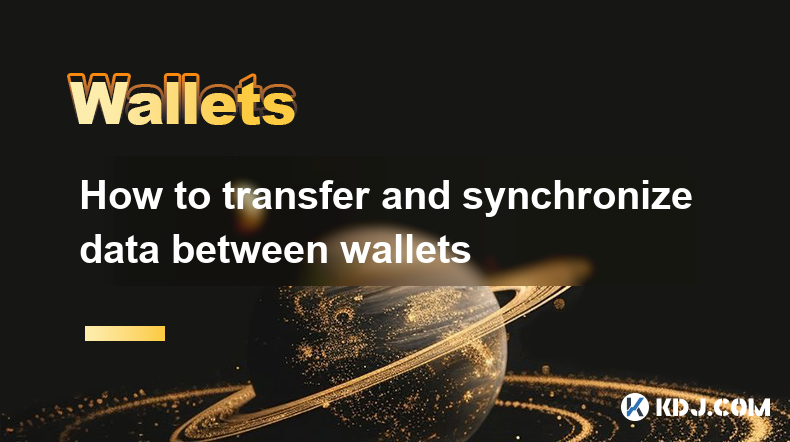
How to transfer and synchronize data between wallets
Feb 21,2025 at 12:25pm
Key Points:Understanding different wallet types and their capabilitiesIdentifying similarities and differences between walletsExploring options for transferring and synchronizing dataEnsuring data security and integrity during transferAddressing common challenges and troubleshooting tipsHow to Transfer and Synchronize Data Between Cryptocurrency Wallets...
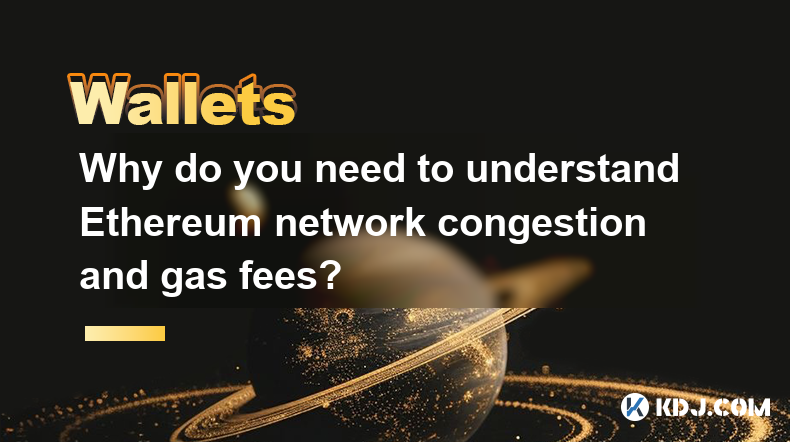
Why do you need to understand Ethereum network congestion and gas fees?
Feb 21,2025 at 04:48am
Key PointsUnderstanding Ethereum Network Congestion and Gas FeesGas Fees ExplainedFactors Affecting Network CongestionStrategies for Minimizing Gas FeesImpact of Ethereum UpgradesUnderstanding Ethereum Network Congestion and Gas FeesThe Ethereum network is a decentralized platform that hosts a vast ecosystem of decentralized applications (dApps), non-fu...
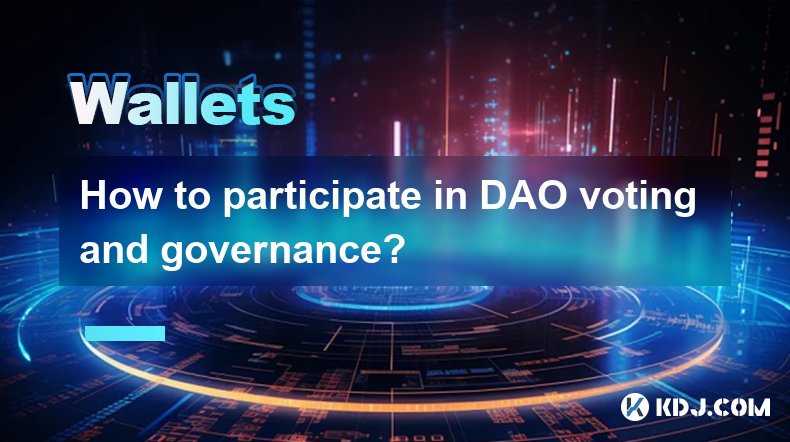
How to participate in DAO voting and governance?
Feb 21,2025 at 03:42pm
Key Points:Overview of DAO Voting and GovernanceUnderstanding DAO Structures and MembershipRole of DAO Tokens and Voting RightsParticipating in Voting and Proposal SubmissionLeveraging Governance Tools and PlatformsImpact of Voting Participation on DAO OutcomesBest Practices for Effective DAO GovernanceHow to Participate in DAO Voting and Governance1. U...
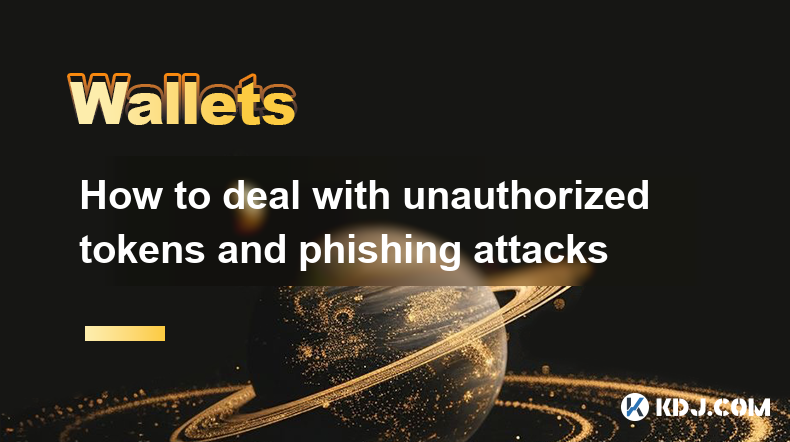
How to deal with unauthorized tokens and phishing attacks
Feb 21,2025 at 05:25am
Dealing with Unauthorized Tokens and Phishing Attacks in the Cryptocurrency CircleThe cryptocurrency market is rife with potential dangers, including unauthorized tokens and phishing attacks. To protect yourself from these threats, it's crucial to take proactive measures and be vigilant in your online activities.Key Points:Unauthorized Tokens: Tokens cr...
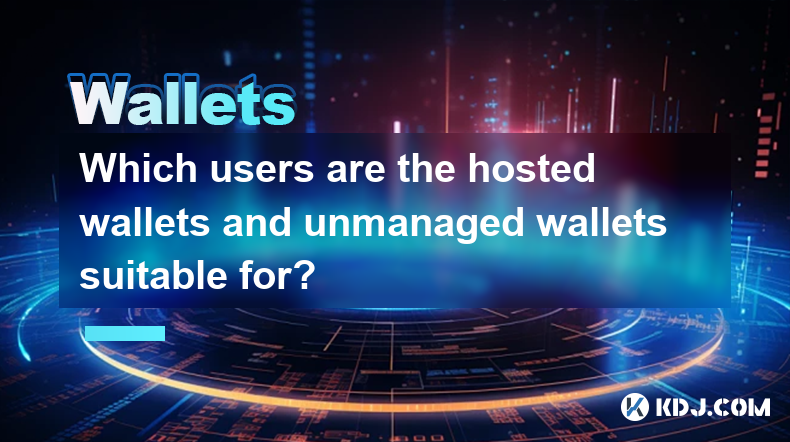
Which users are the hosted wallets and unmanaged wallets suitable for?
Feb 21,2025 at 12:00am
Key PointsDefinition and Characteristics of Hosted Wallets and Unmanaged WalletsAdvantages and Disadvantages of Hosted Wallets and Unmanaged WalletsDetermining Suitability for Hosted Wallets and Unmanaged WalletsExamples of Hosted Wallets and Unmanaged WalletsFrequently Asked Questions and AnswersHosted WalletsDefinition: A hosted wallet is a cryptocurr...
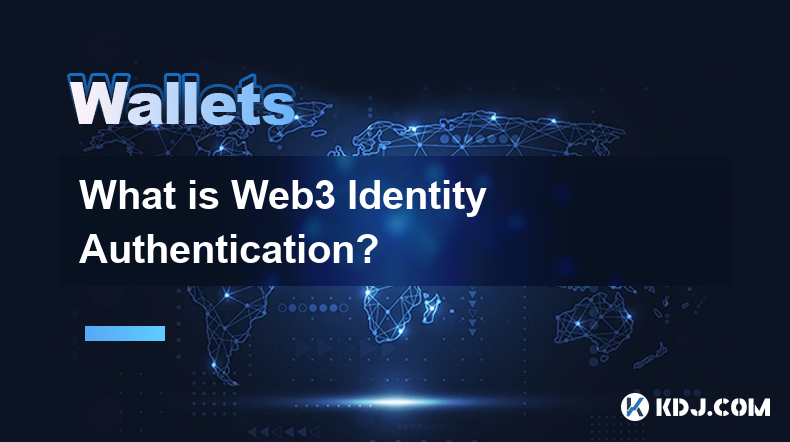
What is Web3 Identity Authentication?
Feb 21,2025 at 06:12am
Key Points:Web3 identity authentication revolutionizes online identity management.Decentralized Identifiers (DIDs) and Verifiable Credentials (VCs) provide secure and privacy-enhancing alternatives to traditional methods.Self-sovereign identity enables individuals to fully own and control their digital identities.Blockchain technology underpins Web3 ide...

How to transfer and synchronize data between wallets
Feb 21,2025 at 12:25pm
Key Points:Understanding different wallet types and their capabilitiesIdentifying similarities and differences between walletsExploring options for transferring and synchronizing dataEnsuring data security and integrity during transferAddressing common challenges and troubleshooting tipsHow to Transfer and Synchronize Data Between Cryptocurrency Wallets...

Why do you need to understand Ethereum network congestion and gas fees?
Feb 21,2025 at 04:48am
Key PointsUnderstanding Ethereum Network Congestion and Gas FeesGas Fees ExplainedFactors Affecting Network CongestionStrategies for Minimizing Gas FeesImpact of Ethereum UpgradesUnderstanding Ethereum Network Congestion and Gas FeesThe Ethereum network is a decentralized platform that hosts a vast ecosystem of decentralized applications (dApps), non-fu...

How to participate in DAO voting and governance?
Feb 21,2025 at 03:42pm
Key Points:Overview of DAO Voting and GovernanceUnderstanding DAO Structures and MembershipRole of DAO Tokens and Voting RightsParticipating in Voting and Proposal SubmissionLeveraging Governance Tools and PlatformsImpact of Voting Participation on DAO OutcomesBest Practices for Effective DAO GovernanceHow to Participate in DAO Voting and Governance1. U...

How to deal with unauthorized tokens and phishing attacks
Feb 21,2025 at 05:25am
Dealing with Unauthorized Tokens and Phishing Attacks in the Cryptocurrency CircleThe cryptocurrency market is rife with potential dangers, including unauthorized tokens and phishing attacks. To protect yourself from these threats, it's crucial to take proactive measures and be vigilant in your online activities.Key Points:Unauthorized Tokens: Tokens cr...

Which users are the hosted wallets and unmanaged wallets suitable for?
Feb 21,2025 at 12:00am
Key PointsDefinition and Characteristics of Hosted Wallets and Unmanaged WalletsAdvantages and Disadvantages of Hosted Wallets and Unmanaged WalletsDetermining Suitability for Hosted Wallets and Unmanaged WalletsExamples of Hosted Wallets and Unmanaged WalletsFrequently Asked Questions and AnswersHosted WalletsDefinition: A hosted wallet is a cryptocurr...

What is Web3 Identity Authentication?
Feb 21,2025 at 06:12am
Key Points:Web3 identity authentication revolutionizes online identity management.Decentralized Identifiers (DIDs) and Verifiable Credentials (VCs) provide secure and privacy-enhancing alternatives to traditional methods.Self-sovereign identity enables individuals to fully own and control their digital identities.Blockchain technology underpins Web3 ide...
See all articles





















































































